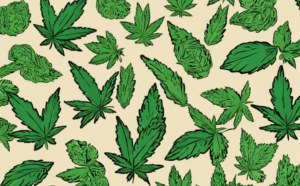Hiccups are a common and usually harmless phenomenon that virtually everyone experiences at some point in their lives. Despite being widespread, the exact causes of hiccups are not entirely understood. In this article, we will delve into the science behind hiccups to better understand why they occur, how they work, and most importantly, explore some of the remedies and tips to get rid of them. Let’s start by examining what hiccups are and what triggers them.
What Are Hiccups?
Hiccups, also known as singultus, are involuntary contractions of the diaphragm muscle — the muscle that separates the chest from the abdomen and plays a crucial role in breathing. These contractions are typically followed by a sudden closure of the vocal cords, which produces the characteristic sound associated with hiccups.
What Triggers Hiccups?
Several factors can trigger hiccups, including:
1. Overeating or Fast Eating: Consuming food too quickly or eating large meals can lead to hiccups.
2. Carbonated Beverages: Drinking carbonated beverages can cause the stomach to become distended, leading to hiccups.
3. Sudden Temperature Changes: Extreme changes in temperature, such as eating something very hot or very cold, can trigger hiccups.
4. Emotional Stress or Excitement: Strong emotions like anxiety, excitement, or stress can sometimes lead to hiccups.
5. Alcohol: Drinking alcohol in excess or too quickly can irritate the diaphragm and trigger hiccups.
6. Smoking: Smoking or exposure to smoke can also be a trigger for hiccups in some individuals.
How Do Hiccups Work?
When the diaphragm muscle contracts suddenly and involuntarily, it causes a rapid intake of breath followed by the closure of the vocal cords. This closure produces the familiar “hic” sound. While the exact mechanism behind this reflex is not fully understood, it is believed to involve the phrenic nerve and the vagus nerve, which are both connected to the diaphragm and play a role in controlling breathing.
Remedies for Hiccups
When it comes to getting rid of hiccups, there are numerous home remedies and tricks that people swear by. While some remedies may work for some individuals, others may not find them effective. Here are some common remedies to try:
– Hold Your Breath: Taking a deep breath and holding it for as long as possible can sometimes help stop hiccups.
– Drink Water: Sipping cold water slowly or gargling with water can often provide relief.
– Breathing into a Bag: Breathing slowly into a paper bag can help increase carbon dioxide levels in the blood and stop hiccups.
– Swallowing a Teaspoon of Sugar: This method is thought to help reset the nerve that controls the diaphragm.
– Pulling Your Knees to Your Chest: This position can help relax the diaphragm and stop hiccups.
– Gently Stimulating the Back of the Throat: Gently rubbing or tickling the back of the throat with a cotton swab can sometimes help.
Persistent Hiccups
While hiccups are usually harmless and short-lived, persistent h. You should seek medical attention if you experience any of the following:
– Hiccups that last more than 48 hours
– Severe discomfort or difficulty breathing
– Hiccuping with black stools or vomiting
– Chest pain
– Unexplained weight loss
Frequently Asked Questions (FAQs) about Hiccups
1. Can hiccups be a sign of a more serious underlying condition?
While hiccups are mostly benign and resolve on their own, persistent hiccups can sometimes be a sign of a more serious underlying medical condition, such as gastrointestinal issues, nerve damage, or even brain disorders.
2. Are there any medical treatments for persistent hiccups?
If home remedies fail to alleviate persistent hiccups, a doctor may prescribe medications such as chlorpromazine, metoclopramide, or baclofen to help stop the hiccups. In severe cases, procedures like phrenic nerve block or acupuncture may be considered.
3. Can stress or anxiety trigger hiccups?
Yes, emotional stress or anxiety can sometimes trigger hiccups. Practicing relaxation techniques, such as deep breathing exercises or meditation, may help prevent stress-induced hiccups.
4. Is it true that hiccups can be contagious?
While hiccups are not technically contagious like a cold or flu, the sound of someone else hiccuping or talking about hiccups can sometimes trigger a reflex in others and make them start hiccuping as well.
5. Are there any preventive measures to avoid getting hiccups?
To reduce the likelihood of getting hiccups, you can try to:
– Eat slowly and chew your food thoroughly
– Avoid carbonated beverages
– Limit alcohol consumption
– Manage stress levels
In conclusion, while hiccups can be annoying and sometimes disruptive, they are generally harmless and tend to resolve on their own. If you experience persistent or severe hiccups, it is essential to consult a healthcare professional to rule out any underlying conditions. With a better understanding of the causes and triggers of hiccups, you can take proactive steps to prevent and manage this common occurrence effectively.



